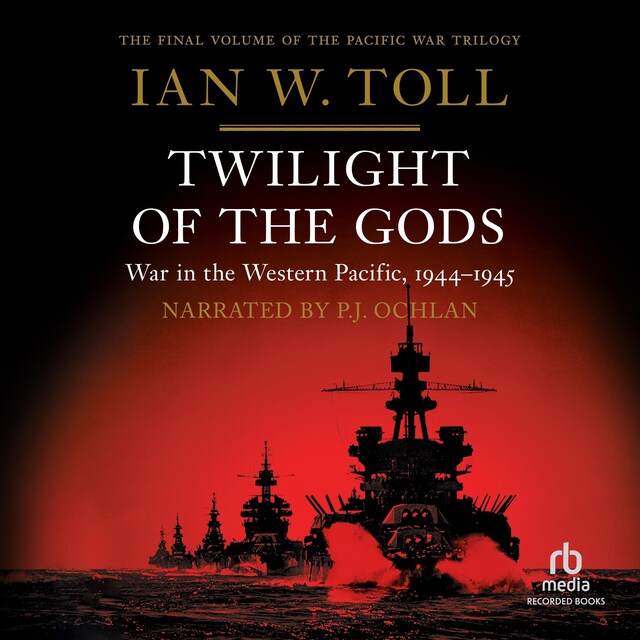
Twilight of the Gods
War in the Western Pacific, 1944-1945
Beskrivning av boken
In June 1944, the United States launched a crushing assault on the Japanese navy in the Battle of the Philippine Sea.
The capture of the Mariana Islands and the accompanying ruin of Japanese carrier airpower marked a pivotal moment in
the Pacific War. No tactical masterstroke or blunder could reverse the increasingly lopsided balance of power between the
two combatants. The War in the Pacific had entered its endgame.
Beginning with the Honolulu Conference, when President Franklin Delano Roosevelt met with his Pacific theater
commanders to plan the last phase of the campaign against Japan, Twilight of the Gods brings to life the harrowing last
year of World War II in the Pacific, when the U.S. Navy won the largest naval battle in history; Douglas MacArthur
made good his pledge to return to the Philippines; waves of kamikazes attacked the Allied fleets; the Japanese fought to
the last man on one island after another; B-29 bombers burned down Japanese cities; and Hiroshima and Nagasaki were
vaporized in atomic blasts.
Ian W. Toll’s narratives of combat in the air, at sea, and on the beaches are as gripping as ever, but he also reconstructs
the Japanese and American home fronts and takes the reader into the halls of power in Washington and Tokyo, where the
great questions of strategy and diplomacy were decided.
Drawing from a wealth of rich archival sources and new material, Twilight of the Gods casts a penetrating light on the
battles, grand strategic decisions, and naval logistics that enabled the Allied victory in the Pacific. An authoritative and
riveting account of the final phase of the War in the Pacific, Twilight of the Gods brings Toll’s masterful trilogy to a thrilling
conclusion. This prize-winning and best-selling trilogy will stand as the first complete history of the Pacific War in more
than twenty-five years, and the first multivolume history of the Pacific naval war since Samuel Eliot Morison’s series was
published in the 1950s.


